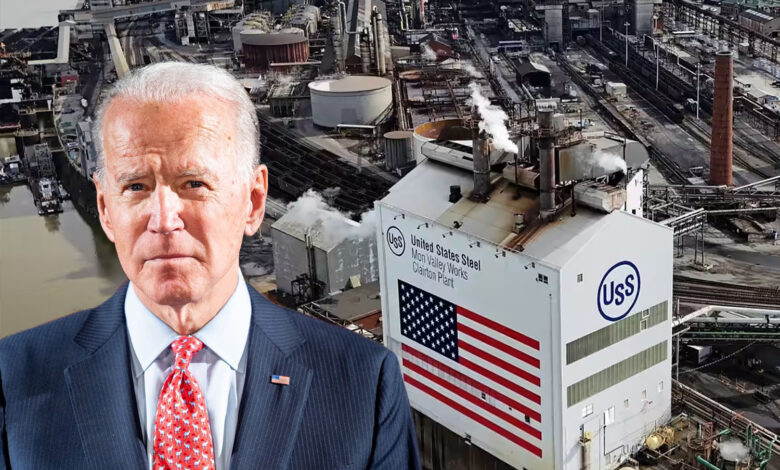Biden Administration Halts Nippon Steel’s U.S. Steel Acquisition Over National Security
President Joe Biden has officially blocked the $14.9 billion acquisition of U.S. Steel by Japan's Nippon Steel, citing concerns related to national security and the need to maintain American control over key industrial assets.

President Joe Biden has officially blocked the $14.9 billion acquisition of U.S. Steel by Japan’s Nippon Steel, citing concerns related to national security and the need to maintain American control over key industrial assets. The announcement was made early on January 3, 2025, underscoring a significant policy direction for the administration.
Details of the Decision:
National Security Concerns: The President highlighted the importance of keeping U.S. Steel under domestic ownership to ensure that supply chains critical for national defense, infrastructure, and other strategic sectors remain secure.
Political Influence: The decision was not without its political backdrop. Intense opposition from the United Steelworkers union played a role, with fears of job losses and the dilution of American industrial know-how fueling the debate.
Business and Legal Reactions: U.S. Steel and Nippon Steel both voiced disappointment, with hints of potential legal challenges to overturn the block. The companies had argued that the merger would strengthen the global competitiveness of U.S. Steel, particularly against rising steel production in China.
Market Reaction: The news led to a sharp decline in U.S. Steel’s stock price, indicating investor concern about the company’s prospects without the merger’s financial and operational benefits.
International Relations: Although Japan is a close ally, this move could introduce tensions in U.S.-Japan relations. However, the administration emphasized that this was not a reflection of bilateral relations but a matter of economic security.
Broader Implications: This decision might set a precedent for how the U.S. views foreign investments in vital industries, potentially affecting future M&A activities. It also raises questions about U.S. Steel’s next steps, whether it will seek other buyers or focus on internal restructuring.
The blocking of this deal has reignited debates on economic nationalism versus globalization. Proponents of the decision argue for the necessity of safeguarding national industries, while critics worry about the potential chilling effect on foreign investments into the U.S. economy. This move by the Biden administration is seen as a clear signal of prioritizing national security and domestic job stability over international corporate mergers, especially in an election year where such issues resonate deeply with voters.




